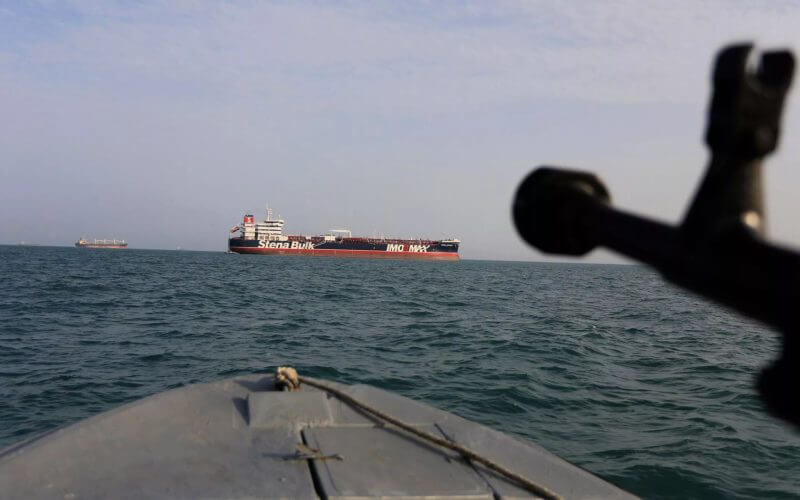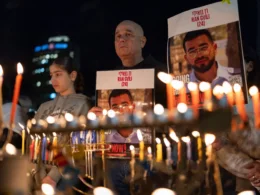The hardline Kayhan newspaper outlet close to the ruling clerics of the Islamic Republic of Iran Wednesday suggested the regime close the Strait of Hormuz, a critical waterway for global energy supplies, in response to alleged foreign support for the nationwide protests gripping the country.
The suggestion came from the editor-in-chief of the hardline Kayhan newspaper, Hossein Shariatmadari, appointed by Supreme Leader Ayatollah Ali Khamenei, in an editorial piece. "Closing the Strait of Hormuz to Western countries’ oil tankers and commercial vessels is Iran’s legal right," Shariatmadari wrote. "We can even seize a part of their commercial cargo as compensation for the financial damage they have done to our country."
"The trial balloon floated by the Supreme Leader’s favorite newspaper is a sign of desperation. Although hardliners might hope that closing the straits would trigger a crisis that could benefit the regime by generating a 'rally around the flag' effect, such a crisis could also boomerang by provoking a devastating and humiliating defeat that would further expose the weakness of the regime," said Jim Phillips, Senior Research Fellow for Middle Eastern Affairs at the Heritage Foundation.
This is not the first time the editor-in-chief has proposed closing the Strait, through which around one-third of all oil traded by sea passes. The waterway at the mouth of the Persian Gulf has seen several conflicts over the years. Attempts to close it would risk significant confrontations with the United States, which has pledged to ensure the free flow of commerce and could disrupt international oil markets.
Other experts like former U.S. State Department official Len Khodorkovsky said to The Foreign Desk that under the Trump administration, the Islamic Revolutionary Guards Corps (IRGC)-Navy was labeled the "Pirates of Hormuz" because of its "harassment of vessels and illegal detainment of sailors in the Strait of Hormuz and elsewhere."
"However, the Iranian regime’s piracy has limits. The U.S. and our allies will never allow it to impede the freedom of navigation in this strategic waterway," he added.
The Strait of Hormuz has been a critical pathway for American national security going back to the Cold War, as administrations have vowed to defend the waterway from regimes and groups bent on upending the world's energy supply. Since the rise of the Islamic Republic in 1979, the government in Tehran has poured billions of dollars into its Navy to attack Saudi oil shipments and American naval forces.
"Iran has a feeble navy but could temporarily close the straits with mines, missiles, drones, and unconventional swarming attacks by the Revolutionary Guard’s fast gunboats. Tehran then would risk exposing itself to U.S. and allied air, drone, and missile strikes, in addition to naval and submarine attacks, which could decimate IRGC naval bases and other coastal facilities," said Philips.
Philips notes that closing the strait would also shut down all Iranian oil exports, while rival Arab states could continue exporting oil through “alternative ports and pipelines."
With regards to Iran and its relationship with anti-American regimes like China, closing the water way would "also hurt China, Iran’s patron, and biggest oil customer. China, which is the leading importer of Persian Gulf oil, would be hurt economically much more than the U.S., which does not need to import oil from the Gulf," said Philips.
"I don’t think the regime would risk alienating China to provoke a crisis that is unlikely to make it any more popular at home but could further undermine the regime’s hold on power,” he added.
After the death of 22-year-old Mahsa Amini at the hands of the Islamic Republic's morality police over her hijab wear, protests broke out throughout the country, with Iranians calling for the downfall of the entire Islamic regime.
In response, Iranian Supreme Leader Ali Khamenei has ordered the full force of the regime's security forces to beat, arrest, and kill protesters engaging in anti-regime activities. Following the outrage from the international community over the brutal crackdowns, members of the government have blamed Western government for supporting the protesters to overthrow the regime.









